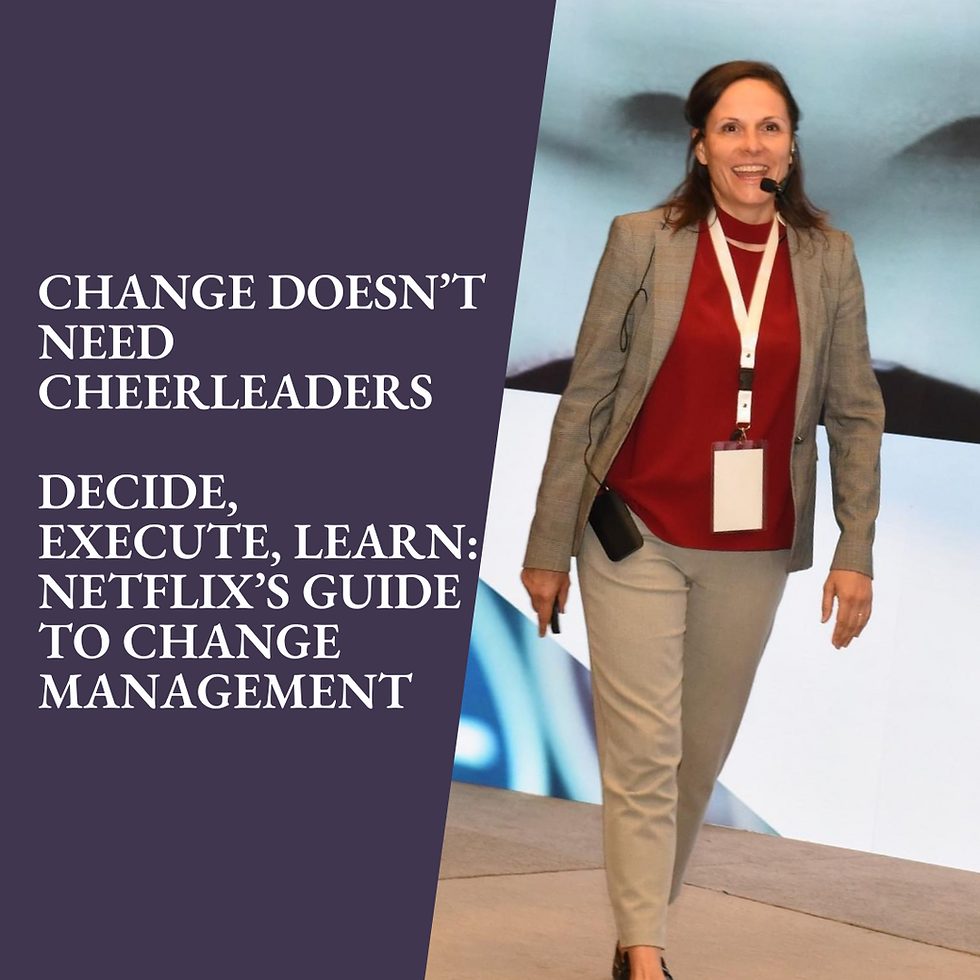Do You Actually Understand Your Employees?
- Szilvia Olah

- Apr 26, 2023
- 2 min read
I was told years ago, "Szilvia, your ability to translate employees' experiences is unparalleled." Yet, each time when I did that, and it was different from what the management wanted to hear, I got into trouble. The funny thing is that I understand their experiences too, which is not very different from their employees. This made me ask the question, do we want to know about the experiences of our people?
The answer is; it depends. If it means we don't have to change, yes! Otherwise, no.
Unfortunately, sticking our heads in the sand fixes nothing. The truth is uncomfortable but must be faced to move forward. So, I decided to design employee experiences for companies that are serious about their business because, guess what? Those experiences have a direct impact on their bottom line. They understand this.
I have been awake since 4 am figuring out a creative way to transform a company of 800 employees with a poor employer reputation into a talent magnet. As I am bullet-pointing the mistakes they made (while building a fantastic brand that looks good from the outside but is severely dysfunctional from the inside), thinking this would have been easier to prevent than to fix it now. The mistakes? Or, rather, the questions that nobody asked during the journey?
What will happen (regarding people) when we reach 50, 100, 200, 500 etc. headcount?
At what point do I start thinking about the culture and how the leaders will demonstrate that?
At what point do I think of the behaviour of the staff that serve my customers?
At what point do I need to start implementing people management practices?
At what point do I need to pay attention to the type of hierarchy I want to build?
As a founder, at what point do I hand over the operation to focus on the bigger picture?
Who will be in charge of my people's experiences? IT IS NOT HR!
Designing employee experiences has nothing to do with HR. They cannot do it for many reasons. They need help. We all know this. Yet, only a very few companies out there, the progressive ones, are creating this role within the organisation that solely focuses on employees' experiences.
Why?
If you think that you are one of those progressive companies or your employees' experiences are taking up too much of your time, and you would rather do something more productive for the company, contact us for a free consultation.
We all know how to build companies from the financial, structural, and processes point of view. But what about building companies from people's experience point of view? Now that's a difficult one.
Let us know if you need help and more on employee experience:

.png)



Comments